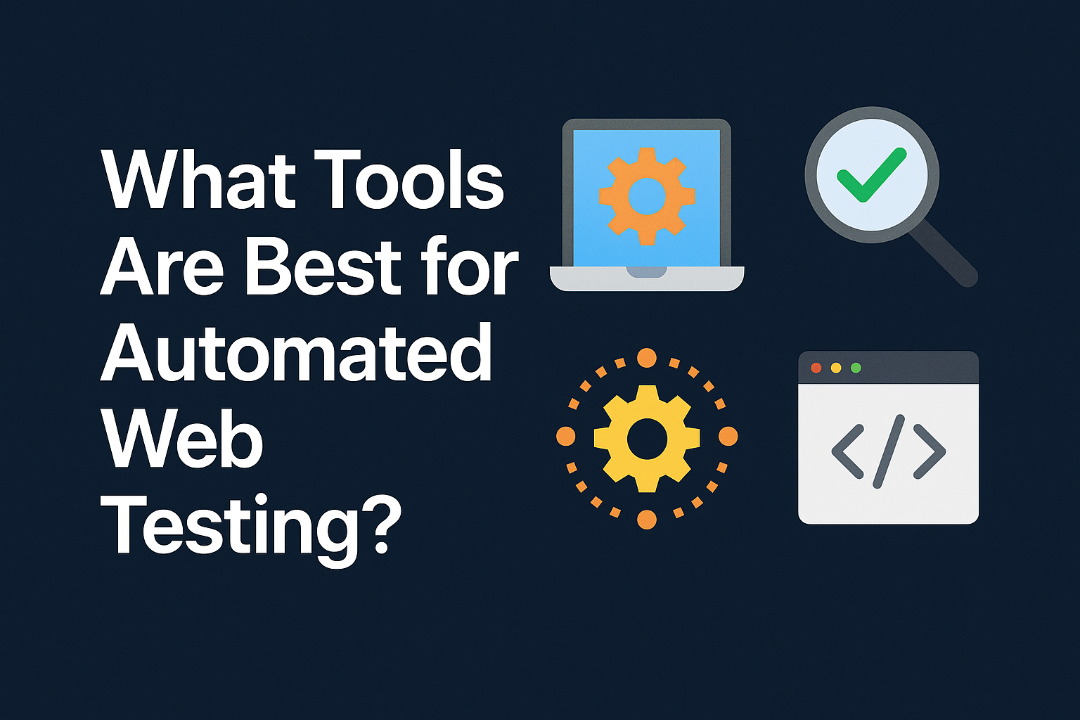 WEB TESTING
WEB TESTING What Tools Are Best for Automated Web Testing?

Introduction
Choosing the right automation tool can make or break your QA strategy. With so many options in 2025, teams often wonder which tools are truly worth investing in. Let’s look at the most reliable ones that balance speed, reliability, and scalability:
Selenium – The Reliable Classic
Still, the backbone of enterprise automation. Its flexibility and wide browser support make it irreplaceable in many large-scale setups.
Great for: Legacy systems and complex workflows.
Playwright – The Modern Choice
Fast, reliable, and built for the apps of today. Playwright’s auto-wait features reduce flaky tests, and its support for multiple languages broadens adoption.
Great for: Agile teams who want CI/CD-friendly testing.
Cypress – Developer-Friendly
Cypress has become the favorite of frontend teams for its real-time debugging and ease of use.
Great for: React, Vue, and Angular apps.
Puppeteer – Chrome Specialist
A powerful tool for headless Chrome testing. While it doesn’t support all browsers, it excels in performance.
Great for: Chrome-centric apps and lightweight automation.
BrowserStack & LambdaTest – Cloud Testing Leaders
Maintaining in-house infra is expensive. These cloud platforms provide thousands of device/browser combinations on demand.
Great for: Distributed teams who need global coverage.
Closing Notes
In 2025, the best web testing strategy isn’t about choosing one tool. It’s about building a tool stack: Selenium for flexibility, Playwright for speed, Cypress for frontend, and BrowserStack for scalability. The smartest QA teams combine tools to balance cost, coverage, and performance.